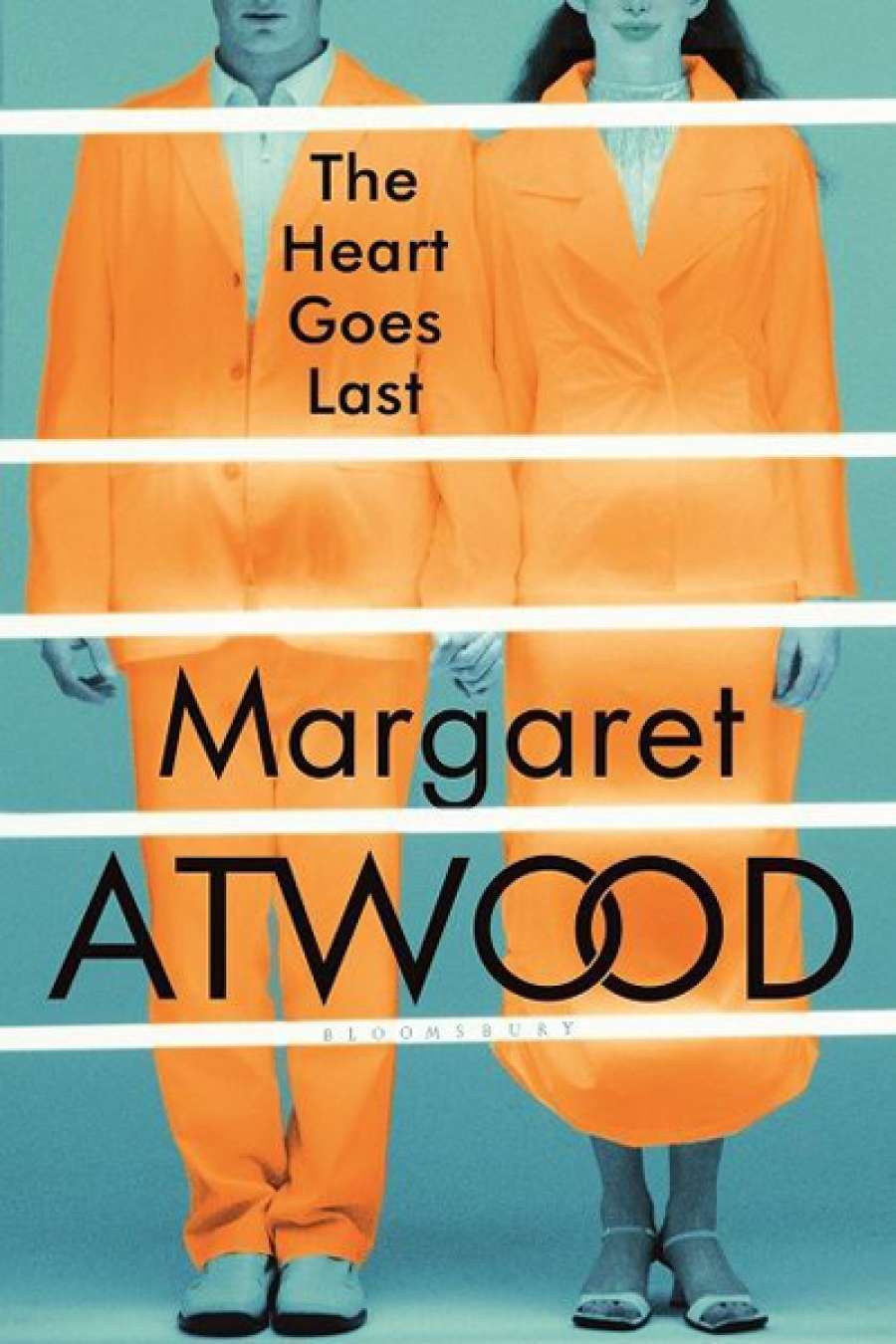
- Free Article: No
- Contents Category: Fiction
- Custom Article Title: James Ley reviews 'The Heart Goes Last' by Margaret Atwood
- Book 1 Title: The Heart Goes Last
- Book 1 Biblio: Bloomsbury, $32.99 hb, 288 pp, 9781408867785
The opening scenario would appear to position The Heart Goes Last at the darker end of the speculative fiction spectrum. But Margaret Atwood’s latest novel – and her fifty-fifth book, no less – is in fact a freewheeling and at times outrageous comedy. Though the dystopian implications of its premise remain thematically important (up to a point), The Heart Goes Last reveals itself to be less a literary cousin to Nineteen Eighty-Four and Brave New World than a witty rewriting of A Midsummer Night’s Dream. No sooner are Stan and Charmaine established in their secure new home than they become entangled in a risky game of partner-swapping with their Alternates. The novel proceeds to skip through an increasingly amusing series of complications and fanciful conceits with such aplomb that, by its second half, Atwood is working in subplots about a malfunctioning sex robot and a troupe of gay Elvis impersonators.
The collision between dystopian fiction and sexual farce is not as incongruous as it might seem. In an odd way, they are a good fit. Novels that have imagined repressive futures in a rather more serious mode than The Heart Goes Last, including Atwood’s own classic of the genre The Handmaid’s Tale (1985), have tended to present love and sexual desire as disturbances to the order of the totalitarian system. The course of true love fails to run smooth in The Heart Goes Last because the various attempts that are made to control or exploit sexual desires are either unsuccessful or generate absurd complications. In one of many echoes of A Midsummer Night’s Dream, for example, a minor character undergoes a medical procedure that makes her fall madly in love with the first face she sees after she wakes, which accidentally results in her becoming erotically bonded to a blue knitted teddy bear.
 Margaret Atwood
Margaret Atwood
‘Margaret Atwood’s latest novel – and her fifty-fifth book, no less – is in fact a freewheeling and at times outrageous comedy’
The plot comes to focus on an intricate plan to expose the nefarious activities of the Positron Project. But the novel’s tale of misdirected lusts is not merely interested in the unpredictable nature of love and desire (or indeed their polymorphous perversity) as subversions of authority. It is also interested in the idea that, as Shakespeare put it, ‘love looks not with the eyes, but with the mind’. Given that a desire is a fantasy, a mismatch with reality, The Heart Goes Last wonders whether the fulfilment of a desire demands a manipulation or distortion of reality. More than this, it wonders about the philosophical implications of love’s delusions, musing in its latter stages as to whether or not the whole notion of freedom of choice, in life as well as in love, has been overrated. Does it even matter if a desire has been artificially roused and artificially met, so long as no one is harmed and a person ends up being satisfied and happy? This ultimately brings the novel’s political concerns back to an intimate level. In the end, it resolves the problem of Stan and Charmaine’s mismatched libidos so neatly that it would be churlish to ask what happened to all that dystopian society-on-the-brink-of-collapse stuff at the beginning.
The Heart Goes Last is executed in an appropriately puckish spirit. Atwood’s tone for much of the novel is arch. The ironic distance she establishes between her narration and the characters (Stan and Charmaine, it must be said, are not the sharpest knives in the drawer) is handled expertly and to great comic effect. The Heart Goes Last is a characteristically shrewd work of fiction, but it is also an agreeable bubble of fancy. It is the work of a writer who has nothing to prove and is having a fine old time amusing herself. It may not qualify as a major addition to Atwood’s vast catalogue; it is, however, a lot of fun.


Comments powered by CComment